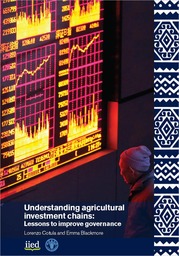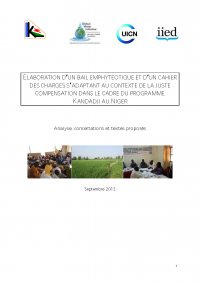Focal point
Location
Mission
Our mission is to build a fairer, more sustainable world, using evidence, action and influence in partnership with others.
Who we are
IIED is one of the world’s most influential international development and environment policy research organisations. Founded in 1971 by economist Barbara Ward, who forged the concept and cause of sustainable development, we work with partners on five continents. We build bridges between policy and practice, rich and poor communities, the government and private sector, and across diverse interest groups. We contribute to many international policy processes and frameworks, including the Intergovernmental Panel on Climate Change, the Millennium Ecosystem Assessment and the UN conventions on climate change and biological diversity.
What we do
IIED carries out research, advice and advocacy work. We carry out action research — generating robust evidence and know-how that is informed by a practical perspective acquired through hands-on research with grassroots partners — and we publish in journals and maintain high research standards. We advise government, business and development agencies, and we argue for changes in public policy. We focus on bottom-up solutions, stay open to flexible, adaptable solutions and are marked by a tradition of challenging conventional wisdom through original thinking.
Resources
Displaying 236 - 240 of 367Understanding agricultural investment chains: Lessons to improve governance
This report draws on 10 case studies of recent large-scale land deals and aims to improve understanding of the investment chains that underpin the deals, and to identify ‘pressure points’ for effective public action to ensure that investments respond to local and national development agendas and promote inclusive sustainable development. The findings of this research demonstrate the wide scope for strategies to be targeted at diverse actors, by a wide range of players, to ensure that investments uphold the Voluntary Guidelines (VGGT).
Evolving customary institutions in the Drylands: an opportunity for devolved natural resource governance in Kenya?
Improved governance of natural resources is crucial for building climate resilient livelihoods and economies in Africa’s drylands. This paper looks at why the authority and capacity of customary natural resource management institutions has been weakened, and how this impacts on resource governance and climate resilience. The case study included looks at a new hybrid form of customary/formal institution that is emerging as a response to the stagnation of development and increasing conflict around resource access.
Investing in locally controlled forestry in Mozambique
This report summarises a strategic assessment of the potential of different options for investing in locally controlled forestry (ILCF), with a strong focus on local enterprise development. It looks in particular at the Province of Niassa in Mozambique. This assessment has its origins in mutual engagement by both SIDA and IIED in a dialogue process on ILCF. The process brought together more than 400 investors, local right-holders and forest experts from across eleven different locations, to advance understanding on ILCF.
Land grabbing: is conservation part of the problem or the solution?
Presents the experience of international development, wildlife and human rights practitioners, shared at a symposium on land grabbing and conservation in March. Land can be ‘grabbed’ for ‘green’ purposes, triggering conflicts that undermine potential synergies. Expanded state protected areas, land for carbon offset markets and REDD, and for private conservation projects all potentially conflict with community rights. Such conflict is counterproductive because secure customary and communal land tenure helps enable sustainable natural resource management by local communities.
Development of an emphyteutic ('long-term') lease for fair compensation in the context of the Kandadji dam programme in Niger
The Kandadji dam, currently under construction in Niger, will displace 38,000 people. The High Commission for the Development of the Niger Valley (HCAVN), in accordance with national law, is committed to compensating people for the traditionally-owned land that they will lose.








